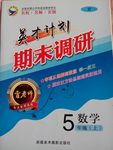题目内容
四、it类
. Everyone knows that _______ is dangerous to play with fire, but _______ is difficult is to prevent children from playing with fire.
| A.it, it | B.what, what | C.it, what | D.what, it |
D
解析

 英才计划期末调研系列答案
英才计划期末调研系列答案 精英口算卡系列答案
精英口算卡系列答案完形填空(共15小题, 每小题1分, 满分15分)
阅读下面的短文,从短文所给的A、B、C、D四个选项中,选出可以填入空白处的最佳答案。
For years we have been told that encouraging a child’s self-respect is important to his or her success in life.__41__ child experts are now learning that __42__ praise can lead to the opposite effect. Praise-aholic(受表扬上瘾的) kids who __43__ it at every turn may become teens who try to get the same kind of __44__ from friends when asked if they want to go in the backseat of the car. ks5*u
The meaning of saying “You are the __45__ girl in class,” or talking about the goals she scored but not her general __46__, is that you love her __47__ when she looks the best, scores the highest, achieves the most. And this __48__ over to the classroom.
Social psychologist Carrol Dweck, PhD, tested the effects of overpraise on 400 fifth graders __49__ she was at Columbia University. She found that the kids who were __50__ for “trying hard” did better on tests and were more likely to take on difficult tasks than __51__ praised for being “smart”.
“Praising qualities or abilities leads to a false __52__ that success will come to you because you __53__ that quality, and it devalues(贬值) effort. __54__, children are afraid to take on challenges, ” says Dweck, now at Stanford University, “They think they’d better __55__while they’re ahead.”
【小题1】
| A.And | B.But | C.Then | D.So |
| A.enough | B.a little | C.too much | D.some |
| A.expect | B.rescue | C.notice | D.design |
| A.education | B.praise | C.competition | D.direction |
| A.prettiest | B.youngest | C.tallest | D.fattest |
| A.ability | B.value | C.kindness | D.effort |
| A.still | B.only | C.already | D.yet |
| A.carries | B.looks | C.turns | D.takes |
| A.while | B.because | C.until | D.unless |
| A.set down | B.looked through | C.picked up | D.thought highly of |
| 【小题11】 |
|
| 【小题12】 |
|
| A.have | B.like | C.advise | D.make |
| 【小题14】 |
|
| A.move | B.stop | C.fight | D.work |